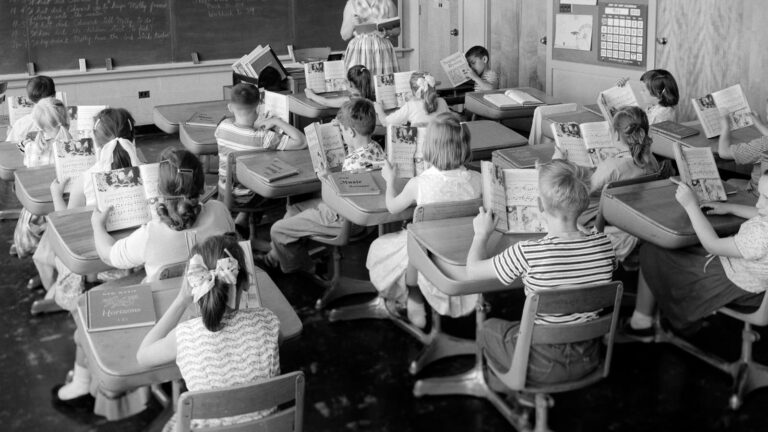7 ways schools are hindering kids’ futures in an AI world
Why is education immune to innovation?
Schools around the world teach as if the world outside their classroom windows is frozen in time. This disconnect is not a problem. It is a crisis.
The late educator and philosopher John Taylor Gatto exposed this disconnect in his groundbreaking critique, “The Seven Lessons of a Teacher.” His essay exposes the hidden curriculum that’s holding back our education system, the practices that are impeding children’s development.
As AI becomes more prevalent, Gatto’s insights are more relevant than ever. Let’s analyze Gatto’s seven intangible lessons, written in the 1990s, for today’s AI world.
1. Confusion
Gatto pointed out that school schedules are cluttered with disconnected subjects: math, history, art. There’s no thread connecting them. This piecemeal approach doesn’t allow students to see the bigger picture. In the world of AI, where connecting different ideas is key to innovative thinking, we’re teaching the opposite.
2. Class Location
Schools are categorizing and labeling kids. They are reinforcing social hierarchies through relentless testing and tracing. The message? Know your place. This is the opposite of a world where AI can level the playing field. With Wi-Fi and determination, anyone can learn almost anything.
3. Indifference
The bell rings. The topic changes. Repeat. This constant interruption teaches kids not to care deeply about anything. They become task-switchers, disinterestedly hopping from one thing to the next. But as AI takes over routine tasks, human success depends on passion and deep focus, which is exactly what our system undermines.
4. Emotional Dependence
Gold stars. Failing marks. Constant praise and criticism. Schools raise kids obsessed with external validation. And they raise adults who are easily swayed by the opinions of others. In a world of AI-driven persuasion and targeted manipulation, we need people with unwavering inner values.
5. Intellectual Dependence
Most classrooms still follow the “sage on stage” model: the teacher speaks and the students absorb it. This passive learning creates a mind that waits to be told what to think. In the AI era, where critical thinking and the ability to challenge decisions are essential, this is a recipe for disaster.
6. Provisional self-esteem
In school, your worth is determined by your grades. This shaky foundation crumbles in the real world. As AI redefines traditional careers, we need self-aware people who aren’t bound by outdated standards. Resilience and adaptability come from true self-worth, not report cards.
7. Surveillance
Full-time surveillance in schools normalizes a lack of privacy. As AI-enabled surveillance becomes more prevalent, this mindset is dangerous. We are raising a generation that is unprepared to protect digital rights and draw boundaries in a world where we are constantly being watched.
As a result, we are churning out confused, docile workers for a world that no longer exists. The AI world demands creative problem solvers, lifelong learners, and independent thinkers.
Our schools produce the exact opposite.
Gatto’s critique is a wake-up call that, 30 years later, we have yet to hear: Our schools are teaching students lessons that diminish their potential in the age of AI. With vision and courage, we can reimagine our education system so that all children can grow up alongside intelligent machines.
AI is here, and our schools must keep up. Our children’s future depends on it.


